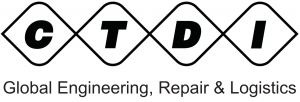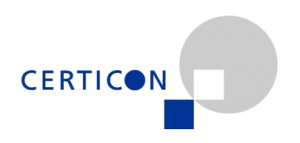Emerging Europe M&A Report 2019/2020
21.01.2020Company: CMS
Emerging Europe remains a magnet for international dealmakers, CMS report reveals
- Deal volumes across emerging Europe fell by 6.5% in 2019
- Foreign investment surged, with cross-border M&A increasing by 14.6% (1,163 deals)
- Private equity investments reached a record high with 318 deals, accounting for 16% of all deal-making
- Telecoms & IT outperformed Manufacturing as the second largest sector by volume (300 deals in 2019, compared with 279 in 2018); the Czech Republic follows this trend
- Real Estate & Construction remained the most active sector with 378 deals and was also the sector with the highest overall deal value (EUR 16.6bn)
- Ukraine appears to be the country to watch – with transaction volumes increasing by 26% and transaction values increasing by 26.3%, compared with 2018
- Deal count dropped in the Czech Republic to the lowest level since 2015 (158 deals) – the average deal value shows a healthy increase.
21 January 2019. Despite M&A deal volume across emerging Europe[i] being at its lowest level in a decade, CEE remains a magnet for international and private equity investment. These are among the findings in the latest CMS Emerging Europe M&A report, published today in cooperation with EMIS.
Emerging Europe saw a total of 1,958 deals during 2019, down 6.5% on 2018, and their combined value came in at EUR 72.34bn (-10.1%). However, looking at the five-year average, the region remains relatively stable, with strong activity seen across many segments of the market.
Magnet for foreign and PE investment
There has been a marked increase in cross-border M&A deals which now account for nearly 60% of all transactions. In-bound investment originating from outside the region witnessed particularly strong growth. By transaction numbers, the US was the clear leader in international investment, clocking up 122 deals – a 37% increase compared with 2018. In-bound investments from UK-based companies also increased (+9%), as did investment from other Western-European countries, including Germany (+17%), France (+19%) and Spain (+133%).
Investment from Asia into emerging Europe also surged in 2019, accounting for 15.9% of M&A value. The overall value has more than doubled y-o-y, reaching EUR 11.5bn in 2019.
China’s presence in the region continues to strengthen and it was the largest investor in emerging Europe by value (EUR 6.4bn – more than twice the value of its investment in 2018). The region also saw a rise in the value of investment from Japan (EUR 2.9bn, +112%), Singapore (EUR 607m, +601%) and South Korea (EUR 717m, +1093%).
Private equity continued to build on its strong roots in 2019 and hit a record high of 318 deals (up from 307). The sector was responsible for 16.2% of all M&A deals (a 3.6% increase compared with 2018), amounting to a value of EUR 22.66bn. Activity in private equity was well-spread across the region, and is credited as one of the key drivers behind the rise in deals across many of the region’s most active sectors, including: Telecoms and IT, Manufacturing and Wholesale & Retail. Private equity buyers and sellers were involved in five EUR 1bn-plus deals across the region in 2019 – the largest being the EUR 1.9bn purchase of Central European Media Enterprises by PPF Group of the Czech Republic.
Helen Rodwell, CEE Head of Corporate, CMS Prague, said: “Although overall deal numbers were a little lower this year, foreign interest in the region remains high with cross-border investment up 14.6% y-o-y and strong inbound investment flowing from Asia, US and UK in particular. Interestingly, Brexit does not seem to have had a considerable impact on the region in terms of UK investment, with deal numbers steady against last year. Private equity has also continued to show its resilience in 2019, as the regional eco-system grows more sophisticated in its ability to do deals. International funds are showing an increasing appetite for large deals in the region, while many regional players are using their home advantage to swoop on small and mid-sized deals as well as partnering on larger transactions.”
Talking about the Balkans, Radivoje Petrikic, CMS Austria and south east Europe comments: “After a spike in deal activity in this region in the last few years, numbers have now normalised and seem to be at a sustainable level. Strong foreign interest remains and both strategic and financial investors are attracted to the opportunities which vary from privatisations of large state enterprises in traditional sectors, to exits by private equity funds and to young innovative start-ups.”
Leading sectors
Driven by the growth of e-commerce, which has increased the demand for warehouses and distribution centers, the Real Estate & Construction sector remained the most active sector in Emerging Europe in 2019, with 378 deals worth EUR 16.6bn.
The Telecoms & IT sector was the second largest by both value and volume (EUR 12bn across 300 deals), overtaking the Manufacturing sector for the first time – a reflection of the increasing importance of digitization and digital communications to the region. Landmark deals for the sector included the EUR 1.28bn purchase of Bulgarian Vivacom by BC Partners-backed United Group.
Country hotspots
The Czech Republic witnessed a substantial drop in deal activity (down 16%) to 158 transactions, the lowest number since 2015. Reported total deal value slightly increased, meaning that there was a healthy increase in average deal value, which could point to the good quality of the assets currently on sale or a continued strong interest of investors to doing deals in the Czech Republic.
Real estate and construction remained the busiest sector with 48 deals. Two more deals than in 2018 were recorded in the telecom and IT sector (28) and the sector overtook manufacturing as the second busies sector (down from 36 to 27).
Ukraine has been identified as the country to watch in 2020 as the reforms under new president Volodymyr Zelenskiy start to kick in. Transaction activity (+26%) and values (+26.3%) were at their highest levels since 2013, offering a glimpse of what might be to come. From the larger markets, Russia’s and Turkey’s deal flow remained almost flat, whilst Romania’s deal volume increased by 10%.
According to the CMS report, deal values went up in Poland in 2019, despite its overall deal volume declining. This was thanks to a nearly double increase in the median deal size, with mega deals driving up M&A values. Poland saw an increase in the number of EUR 200m-plus deals – including the sale of DCT Gdansk to a consortium of investors, which includes Poland’s Sovereign Wealth Fund, for EUR 1.18bn – while Czech Republic claimed the EUR 1.8bn takeover of gas distributor Innogy Grid by a consortium led by Macquarie of Australia.
Real estate and construction remained the busiest sector with 48 deals. Two more deals than in 2018 were recorded in the telecom and IT sector (28) and the sector overtook manufacturing as the second busies sector (down from 36 to 27).
Stefan Stoyanov, Global Head of M&A Database, EMIS, comments: “After a mid-year scare that emerging Europe deal activity could follow global M&A for a sharp decline, the last three months of the year proved quite strong. Several mega-deals across the region and in countries like Poland and Bulgaria helped push the aggregate value of M&A to EUR 72.34bn, which while still down by 6.5% y-o-y is а big upside compared to the nearly 30% slump globally. The overall investment climate should improve in 2020 now that the US-China trade war tensions appear to be easing up and that there is a clear path ahead for Brexit.”
Outlook for 2020
Helen Rodwell, CEE Head of Corporate, CMS Prague, comments: “Looking at the year ahead, we believe there may be some slowdown in economic growth, but even if that is the case, we don’t see any dramatic fall in M&A activity across emerging Europe because these markets are independent and self-contained. If anything, a slower start to 2020 might even stimulate M&A activity as vendors’ minds focus on getting deals done sooner rather than later, and investors who have been waiting on the side lines step into the fray.”
[i] Albania, Bosnia and Herzegovina, Bulgaria, Croatia, Czech Republic, Hungary, Montenegro, Poland, Romania, Russia, Serbia, Slovakia, Slovenia, Turkey, Ukraine.
Tags: Law | Economics | Finance | Real Estate | Business Development | IT | Media | Manufacturing |






